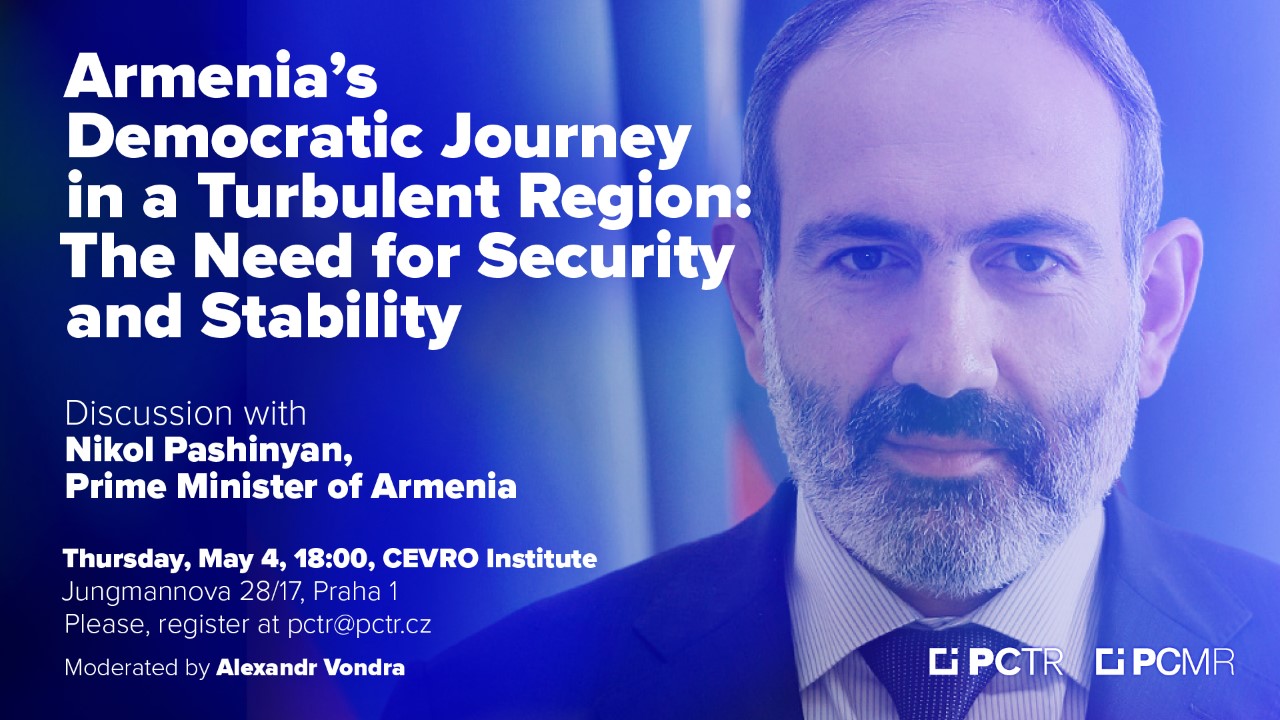Debate “Armenia’s Democratic Journey in a Turbulent Region: The Need for Stability and Security”
Date of publication: May 12, 2023

Prague Center for Transatlantic Relations (PCTR) and Prague Center for Middle East Relations (PCMR) of CEVRO Institute organized a public debate “Armenia’s Democratic Journey in a Turbulent Region: The Need for Stability and Security” with the Prime Minister of the Republic of Armenia, Nikol Pashinyan. The even took place on Thursday, May 4 at 18:00 at CEVRO Institute.
The discussion was moderated by Alexandr Vondra, Member of European Parliament and Tomáš Pojar, National Security Adviser to the Prime Minister of the Czech Republic.
For video recording of the event click on the button below.
Bio of the Prime Minister Nikol Pashinyan
Nikol Pashinyan was appointed Prime Minister of the Republic of Armenia on August 2, 2021. He headed the proportional list of the “Civil Contract” party. He was the candidate for the post of Prime Minister of the party in the 2021 extraordinary elections of the National Assembly. The party received 53.91% of the votes. He was elected to the National Assembly in the general elections in 2017. He was elected to parliament for the first time in 2012.
A journalist by profession, he had been actively engaged in journalism since 1992. In 1998, he founded Oragir Daily, which was closed down by a court decision in 1999 for political reasons. He was sentenced to one year for defamation against then Minister of National Security Serzh Sargsyan. He edited the newspaper Haykakan Zhamanak (“Armenian Times”) from 1999 to 2012.
Pashinyan was critical of Armenia’s close relations with Russia and promoted establishing closer relations with Turkey instead. After the 2008 presidential election, Pashinyan claimed voter fraud and incited protestors to attack police in the post-election protests on March 1, 2008. Convicted of organizing mass disorders, he went into hiding until mid-2009 and was sentenced to seven years in prison for his role in the protests. After spending one year and 11 months in prison, he was released on May 27, 2011, by the general amnesty declared by the Armenian authorities. He has been widely recognized as a prisoner of conscience in Armenia and by the international community.

